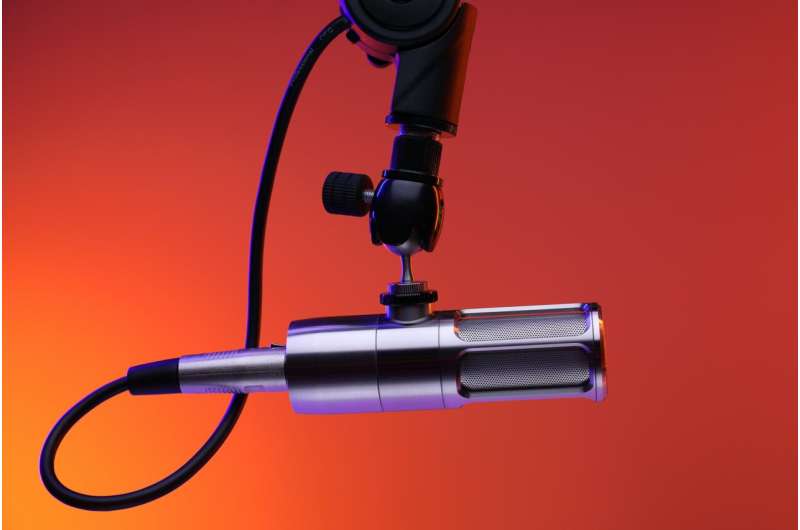This article has been reviewed according to Science X's editorial process and policies. Editors have highlighted the following attributes while ensuring the content's credibility:
fact-checked
trusted source
proofread
Speech analysis can help measure diagnosis, severity, and onset of mental illness

Objective measurement of psychiatric disorders has long proved challenging. Yet, there is ample evidence that analysis of speech patterns can accurately diagnose depression and psychosis, measure their severity, and predict their onset, according to a literature review featured in the January/February issue of the Harvard Review of Psychiatry.
The review examines current published literature related to the use of speech pattern analysis to manage psychiatric disorders and identified four key areas of application: diagnostic classification, severity assessment, onset prediction, as well as prognosis and treatment outcomes. "Models that bring together multiple speech features can distinguish speakers with psychiatric disorders from healthy controls with high accuracy," writes Rudolf Uher, Ph.D., MD, Dalhousie University Department of Psychiatry and Nova Scotia Health, and colleagues Katerina Dikaios, MSc, Sheri Rempel, MSc, Sri Harsha Dumpala, MSc, Sageev Oore, Ph.D., and Michael Kiefte, Ph.D.
Automated analysis more promising than subjective measures like interviews or questionnaires
Features of mental illness are often presented through speech and language, and psychiatric clinical assessment should consider patterns in a patient's speech—such as speed, coherence, and content. Advances in natural language processing, speech recognition, and computer science have underscored the fact that using speech analysis as an objective, clinical measurement of mental illness is possible.
The research team reviewed hundreds of articles, papers, and reports of individuals with a mental disorder that discussed aspects of their speech. Case studies and studies of patients with neurological disorders were excluded from the review. They included articles that analyzed transcriptions of participants' speech.
Most studies included in the review discussing the use of speech analysis in diagnosis concerned patients with major depression, whose speech is often slow, full of pauses, negative in content, and lacking energy. In these, diagnostic accuracy was high, over 80% in one study.
Automated analysis is also effective in predicting the onset of mental illness, particularly in high-risk populations. Multiple studies that looked at speech semantics, including coherence and complexity, predicted the onset of psychosis in two to two and a half years with as much as 100% accuracy. However, literature on the impact of speech analysis on prognosis and treatment outcomes is limited and more research is needed.
Importantly, using speech-pattern analysis in assessing suicide risk appears to have great potential. One recent study showed that measuring variables such as erratic frequency, hesitations, and jitters identified patients with suicide ideation against healthy patients 73% of the time.
Speech variance, other issues remain
There are numerous factors, such as medication effects, as well as demographic and cultural attributes—language, gender, and sex, among others—that can cause variance in speaking patterns and make it challenging to incorporate speech into objective illness and outcome assessment. In addition, the authors suggest that any further research should take into consideration illness states across time, as most of the studies examined here looked at currently ill patients rather than whether similar patterns endure long term between symptoms.
More information: Katerina Dikaios et al, Applications of Speech Analysis in Psychiatry, Harvard Review of Psychiatry (2023). DOI: 10.1097/HRP.0000000000000356




















